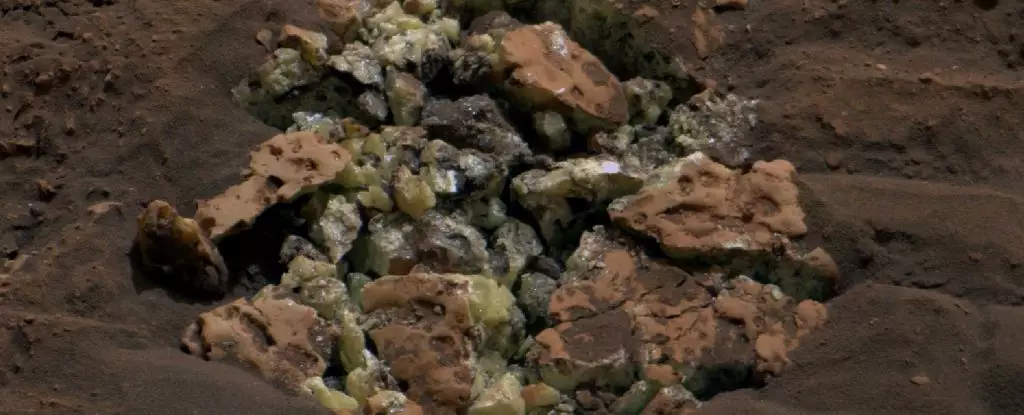A recent discovery on Mars has scientists buzzing with excitement. The Curiosity rover accidentally cracked open a rock while rolling over it, revealing yellow crystals of elemental sulfur. This find is particularly surprising as sulfur in its pure elemental form has never been found on the red planet before. The location where this rock was found, the Gediz Vallis Channel, is now showing signs that elemental sulfur may be more abundant there than previously thought.
The discovery of elemental sulfur on Mars is significant for several reasons. Sulfates, which are common on Mars, can provide valuable information about the planet’s water history and geological evolution. However, the presence of pure sulfur indicates a different set of conditions that are not yet fully understood. This finding opens up new avenues for exploration and research into the geological history of Mars.
Sulfur is an essential element for all life forms, as it is used to make amino acids necessary for protein synthesis. While the discovery of sulfates on Mars was not new, the presence of elemental sulfur raises questions about potential habitable conditions in the past. Although there is no evidence of current life on Mars, the discovery of useful elements for living organisms is a step in understanding the planet’s potential for supporting life.
Studying the geological evolution of Mars and how sulfur came to be present in certain areas will require further research and analysis. Detailed modeling of Mars’s history and environmental conditions will be necessary to shed light on this unusual discovery. The Curiosity rover will continue its exploration of the Gediz Vallis Channel, collecting data and samples to further understand the mysteries of Mars’s past.
The discovery of elemental sulfur on Mars represents a new chapter in our understanding of the planet’s geological composition and history. This surprising find opens up possibilities for further exploration and research into Mars’s past habitability. As scientists continue to uncover new mysteries on the red planet, the quest for knowledge about our neighboring world remains an exciting and challenging endeavor.


Leave a Reply